As the British media continue characterising human rights as an unnecessary perk for criminals and demonising all African immigrants as sub human scroungers. Ligali contributors write in with their take on the role of selected African British politicians in Britain’s latest game of divide and rule.
Written by Sankofa
"We are engaged in an historic struggle for the victory of the African Renaissance because we are inspired by, among others, the Haitian revolution.
We are engaged in struggle for the regeneration of all Africans, in the Americas, the Caribbean, Africa and everywhere, because we want to ensure the struggle of our people here in Haiti, in the Caribbean, in the Americas, Europe and Africa must never be in vain.
In this way, we will contribute to the renaissance of Africans everywhere in the world and ensure we are no longer an object of ridicule and pity, nor a tool of exploitation to be discarded at the fancy of the powerful, but that we become what we really and truly are: proud and confident human beings who occupy their pride of place as equals among the peoples of the world."
President Thabo Mbeki
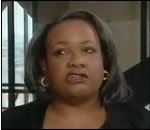
African peoples of the world face many challenges, the least of which is how we unite to empower our community. The 'divide and rule' mentality absorbed by some of our ancestors during Slavery and Colonialism helped to reinforce our subjugation. In acknowledging this factor, we can see progress in our unity, whilst sharing the beauty in our different experiences and cultures. The recent comments by the 'black' British MP Diane Abbott seem to signal another attempt at divide and rule by stealth.
In her article 'Think Jamaica is bad? Try Nigeria' published on the 9th April 2006; she attempts to highlight the positive prospects for Jamaica, by making questionable comparisons with Nigeria. The condescending assumption made about Africans from Jamaica, is that such a comparison is necessary to show the optimism for the future of Jamaica. This reflects badly on Diane Abbot, because it shows her contempt for the global African community. Such an erudite politician capable of presenting well-reasoned arguments, seems to be considerably lazy in presenting her arguments in this instance.
Abbot's newfound crusade to highlight problems in Nigeria, leads one to the conclusion that this is just a PR stunt to find favour with the mainstream British media by validating the status quo which benefits from presenting Africa as backward. This does not eliminate valid concerns about corruption and economic development in Nigeria. If she sought to look deeper she would find that African journalists and technocrats from Nigeria are at the forefront in challenging these issues. The recent failure of the proposed third-term bid for President Obasanjo, can be credited to the unrelenting criticism from African journalists of Nigeria.
The aim of her follow-up article in the Evening Standard entitled 'Black unity matters but so does truth' was purported to stress the importance of 'black' unity, whilst delivering some 'necessary truth'. Unfortunately these so called ‘truths’ also happen to be a reminder of the inane Africans from the Caribbean versus Africans from the Continent debate. This gives comfort to anti-African apologists and liberals, whilst attempting to trap Africans into resigned acceptance of an anti-African agenda. Basque separatists of Spain and France and the devolution of Eastern European states into smaller republics is proof of tribalism in Europe. Catalonians have minor cultural differences with the rest of Spain (and have historically called for a Catalan nation), yet they would fiercely rally behind their 'Spanish-ness' to defend Spain from any attack from outsiders. Why should Africans act differently, when it is in their interest?
The articles were predictably well received by the media, inspiring radio debates and a national television interview. The Vanessa Feltz morning show on BBC Radio London relished the divisive nature of her comments and encouraged individual Africans from the Caribbean and the Continent to insult each other and espouse warped personal realities. It was ironic that the most enlightening moment of the show, was a text message sent in warning of the ills of 'black immigrants' without making any distinction.
The Politics show, Sunday 21st May, BBC 1, was the visual setting for a game of 'massa loves me more than you'. This time Diane Abbot was joined by Lola Ayonrinde (an equally clueless African claiming to represent Nigerians). Lola Ayonrinde is a conservative party member, a former mayor of Wandsworth and a professional anti-African apologist, of Daily Mail fame noted for claiming that "there is no real evidence for racial crime against black people". She helped to create the required spectacle. Their apparent debate, lacked reasoned argument, with no other African guest's apart from the two proponents, to challenge the arguments presented. Perhaps such acts of self-destructive foolishness are the perks of being selected not elected.
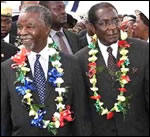
External Links
Evening Standard - Black unity matters, but so does truthJamaica Observer - Think Jamaica is bad? Try NigeriaLMN - Elected or selected - A crisis of leadership?
Written by Sankofa
"We are engaged in an historic struggle for the victory of the African Renaissance because we are inspired by, among others, the Haitian revolution.
We are engaged in struggle for the regeneration of all Africans, in the Americas, the Caribbean, Africa and everywhere, because we want to ensure the struggle of our people here in Haiti, in the Caribbean, in the Americas, Europe and Africa must never be in vain.
In this way, we will contribute to the renaissance of Africans everywhere in the world and ensure we are no longer an object of ridicule and pity, nor a tool of exploitation to be discarded at the fancy of the powerful, but that we become what we really and truly are: proud and confident human beings who occupy their pride of place as equals among the peoples of the world."
President Thabo Mbeki

Diane Abbott: African British MP
In her article 'Think Jamaica is bad? Try Nigeria' published on the 9th April 2006; she attempts to highlight the positive prospects for Jamaica, by making questionable comparisons with Nigeria. The condescending assumption made about Africans from Jamaica, is that such a comparison is necessary to show the optimism for the future of Jamaica. This reflects badly on Diane Abbot, because it shows her contempt for the global African community. Such an erudite politician capable of presenting well-reasoned arguments, seems to be considerably lazy in presenting her arguments in this instance.
Abbot's newfound crusade to highlight problems in Nigeria, leads one to the conclusion that this is just a PR stunt to find favour with the mainstream British media by validating the status quo which benefits from presenting Africa as backward. This does not eliminate valid concerns about corruption and economic development in Nigeria. If she sought to look deeper she would find that African journalists and technocrats from Nigeria are at the forefront in challenging these issues. The recent failure of the proposed third-term bid for President Obasanjo, can be credited to the unrelenting criticism from African journalists of Nigeria.
The aim of her follow-up article in the Evening Standard entitled 'Black unity matters but so does truth' was purported to stress the importance of 'black' unity, whilst delivering some 'necessary truth'. Unfortunately these so called ‘truths’ also happen to be a reminder of the inane Africans from the Caribbean versus Africans from the Continent debate. This gives comfort to anti-African apologists and liberals, whilst attempting to trap Africans into resigned acceptance of an anti-African agenda. Basque separatists of Spain and France and the devolution of Eastern European states into smaller republics is proof of tribalism in Europe. Catalonians have minor cultural differences with the rest of Spain (and have historically called for a Catalan nation), yet they would fiercely rally behind their 'Spanish-ness' to defend Spain from any attack from outsiders. Why should Africans act differently, when it is in their interest?
The articles were predictably well received by the media, inspiring radio debates and a national television interview. The Vanessa Feltz morning show on BBC Radio London relished the divisive nature of her comments and encouraged individual Africans from the Caribbean and the Continent to insult each other and espouse warped personal realities. It was ironic that the most enlightening moment of the show, was a text message sent in warning of the ills of 'black immigrants' without making any distinction.
The Politics show, Sunday 21st May, BBC 1, was the visual setting for a game of 'massa loves me more than you'. This time Diane Abbot was joined by Lola Ayonrinde (an equally clueless African claiming to represent Nigerians). Lola Ayonrinde is a conservative party member, a former mayor of Wandsworth and a professional anti-African apologist, of Daily Mail fame noted for claiming that "there is no real evidence for racial crime against black people". She helped to create the required spectacle. Their apparent debate, lacked reasoned argument, with no other African guest's apart from the two proponents, to challenge the arguments presented. Perhaps such acts of self-destructive foolishness are the perks of being selected not elected.

President Thabo Mbeki and President Robert Mugabe: Reversing colonial legacy
External Links
Evening Standard - Black unity matters, but so does truthJamaica Observer - Think Jamaica is bad? Try NigeriaLMN - Elected or selected - A crisis of leadership?
Ligali is not responsible for the content of third party sites

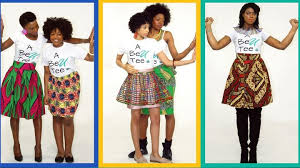
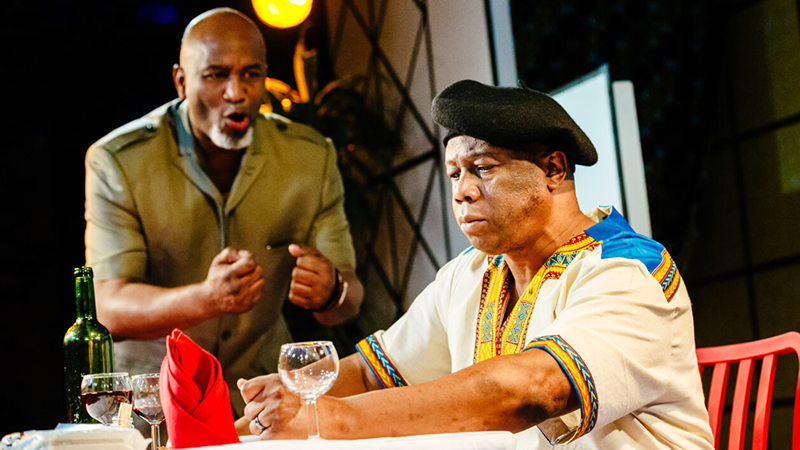
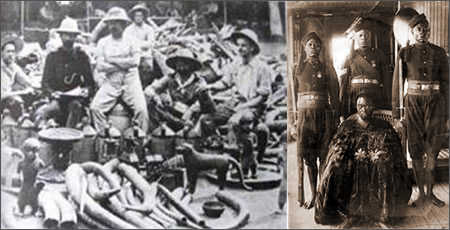
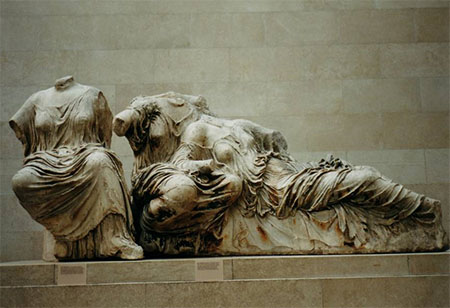
Get involved and help change our world